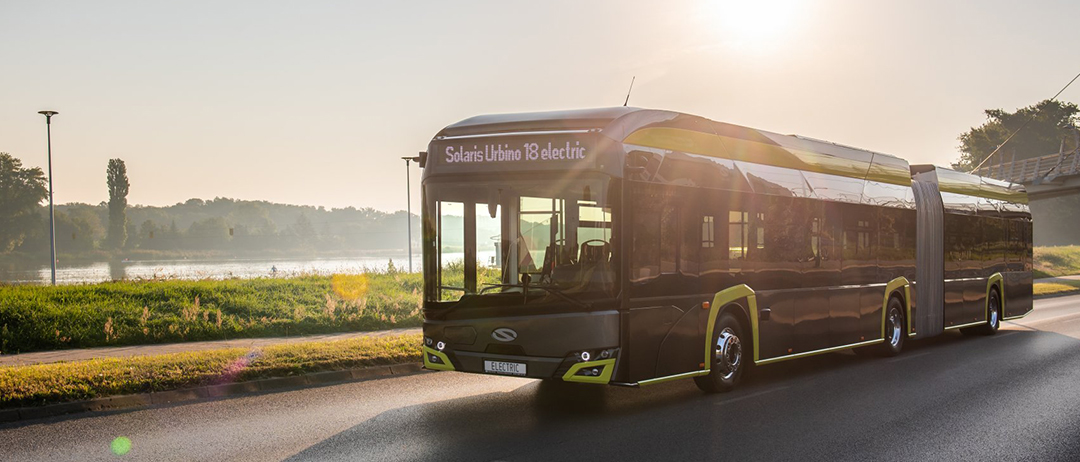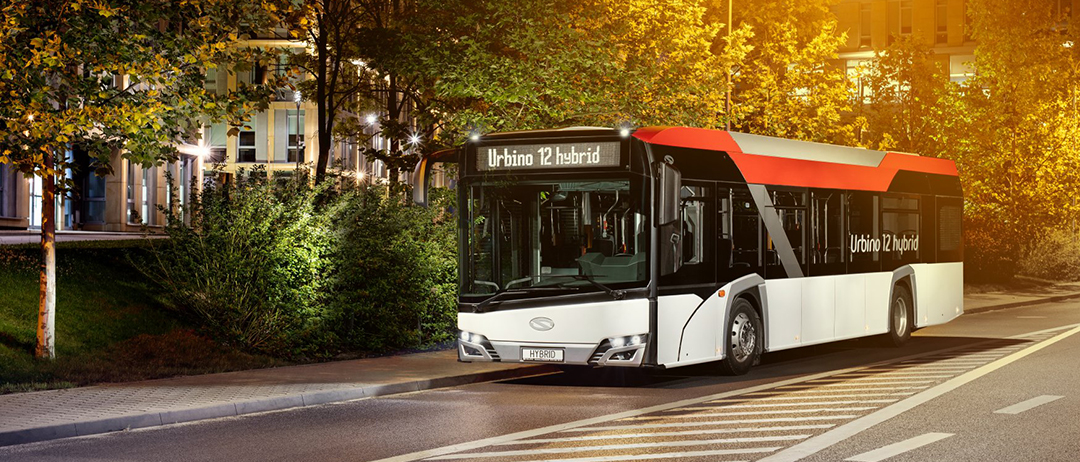Solaris in Europe and the world
So far, almost 25,000 Solaris vehicles have been delivered and are running on the streets of 850 cities in 33 countries across Europe and beyond.
Solaris is part of the Spanish CAF Group (Construcciones i Aukiliar de Ferrocarriles) S.A.
From conception to design and production, all Solaris buses are produced in Poland. All activities undertaken by the manufacturer are in line with the brand's mission, which is reflected in the motto "We are changing the image of public transport".
Zero emissions
Focusing on innovative technologies, Solaris is a leader in the field of electric buses and other environmentally friendly vehicles. Electric buses manufactured by Solaris use advanced technologies to reduce or completely eliminate the emission of harmful gases. These buses are powered by battery-powered electric motors, which means they emit no exhaust fumes while driving. This is especially important in urban areas where emissions of pollutants from traffic are a serious environmental problem.

Solaris' zero-emission buses not only help protect the environment by reducing air pollution, but also provide a quieter and more comfortable ride for passengers. Electric engines are quieter than traditional diesel or gasoline engines, which contributes to noise reduction in urban areas and improves the quality of life of local communities.
In addition, Solaris is also focusing on the development of battery technologies that enable longer range and faster charging of electric buses. This increases the practicality and efficiency of the use of electric vehicles in urban transport, making them increasingly attractive for public transport companies and cities that strive to reduce emissions and improve the quality of life of their citizens. Solaris actively cooperates with public transport operators and provides them with comprehensive support in their transition to zero-emission mobility.

In short, Solaris zero-emission buses represent a key step towards a more sustainable and environmentally friendly public transport. Their use contributes to the reduction of air pollution, noise and fossil fuel consumption, which makes them not only an environmentally beneficial solution, but also the future of urban transport around the world.


